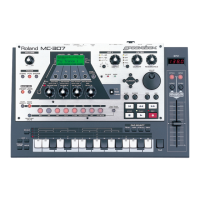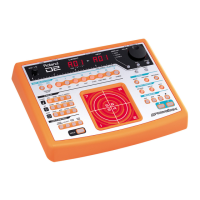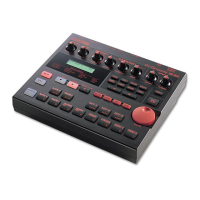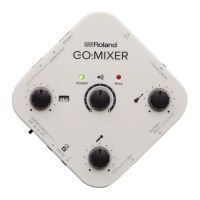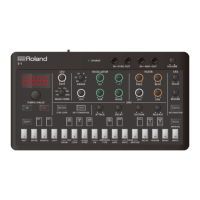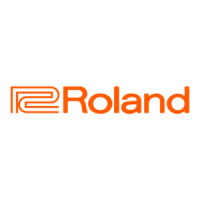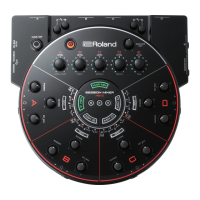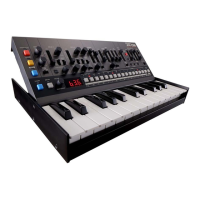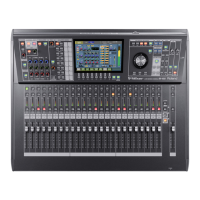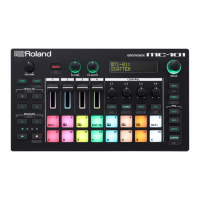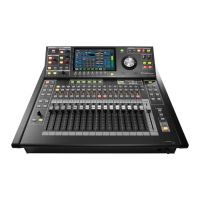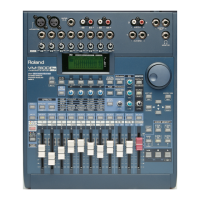68
Parameter List
Parameter Value Explanation
TVF Filter Type
Selects the type of TVF lter.
* If Filter Type is set to VCF, this will be LPF.
OFF No lter is used.
LPF
Low Pass Filter. This cuts the frequencies
in the region above the cuto frequency
(Cuto Frequency). Since this cuts the high-
frequency region, the sound becomes more
mellow. This is the most common lter used
in synthesizers.
BPF
Band Pass Filter. This leaves only the
frequencies in the region of the cuto
frequency (Cuto Frequency), and cuts
the rest. This can be useful when creating
distinctive sounds.
HPF
High Pass Filter. This cuts the frequencies in
the region below the cuto frequency (Cuto
Frequency). This is suitable for creating
percussive sounds emphasizing their higher
tones.
PKG
Peaking Filter. This emphasizes the
frequencies in the region of the cuto
frequency (Cuto Frequency). You can use
this to create wah-wah eects by employing
an LFO to change the cuto frequency
cyclically.
LPF2
Low Pass Filter 2. Although frequency
components above the Cuto frequency
(Cuto Frequency) are cut, the sensitivity of
this lter is half that of the LPF. This makes
it a comparatively warmer low pass lter.
This lter is good for use with simulated
instrument sounds such as the acoustic
piano.
* If you set “LPF2,” the setting for the Resonance
parameter will be ignored (p. 68).
LPF3
Low Pass Filter 3. Although frequency
components above the Cuto frequency
(Cuto Frequency) are cut, the sensitivity of
this lter changes according to the Cuto
frequency. While this lter is also good for use
with simulated acoustic instrument sounds,
the nuance it exhibits diers from that of
the LPF2, even with the same TVF Envelope
settings.
* If you set “LPF3,” the setting for the Resonance
parameter will be ignored (p. 68).
VCF TYPE
FLAT,
TYPEJP,
TYPE-M,
TYPE-P
This parameter is eective when Filter Type is
VCF.
Each setting simulates the operation of an
analog synthesizer’s LPF. In particular, MG,
JP, and P5 are types that are suitable for
reproducing synthesizer sounds of the past.
Filter Slope -12, -18, -24 [dB/Oct]
This button selects the slope (steepness) of
the lter.
For VCF, you can choose -12, -18, or -24.
For TVF, only -12 or -24 can be selected.
If Filter Type is TVF, the following limitations
apply.
5
You can specify only -12 dB or -24 dB. If
you specify -18 dB, the sound generator
operates internally with the -12 dB setting.
5
If you specify -24 dB, the polyphony will
be lower than if you specify -12 dB.
HPF Cuto 0–1023
Species the cuto frequency of the -6 dB
high-pass lter.
* This parameter is eective when Filter Type is
VCF.
Parameter Value Explanation
Cuto 0–1023
Selects the frequency at which the lter
begins to have an eect on the waveform’s
frequency components.
With “LPF/LPF2/LPF3” selected for the TVF
Filter Type parameter, lower cuto frequency
settings reduce a tone’s upper harmonics
for a more rounded, warmer sound. Higher
settings make it sound brighter.
If “BPF” is selected for the Filter Type, harmonic
components will change depending on the
TVF Cuto Frequency setting. This can be
useful when creating distinctive sounds.
With “HPF” selected, higher Cuto Frequency
settings will reduce lower harmonics to
emphasize just the brighter components of
the sound.
With “PKG” selected, the harmonics to be
emphasized will vary depending on Cuto
Frequency setting.
Keyfollow -200–+200
Use this parameter if you want the cuto
frequency to change according to the
key that is pressed. Relative to the cuto
frequency at the key specied by Cuto
Keyfollow Base Point, positive “+” values
cause the cuto frequency to become higher
as you play above the reference key, and
negative “-” values cause the cuto frequency
to become lower.
Higher values will produce greater change.
-200
C4C3C2C1 C5 C6 C7
+50
+100
-100
o
-1
-2
+1
+2
Cuto Velocity Curve FIXED, 1–7
Selects one of the following seven curves that
determine how keyboard playing dynamics
(velocity) inuence the cuto frequency. Set
this to “FIXED” if you don’t want the Cuto
frequency to be aected by the keyboard
velocity.
Cuto Velocity Sens -100–+100
Use this parameter when changing the
cuto frequency to be applied as a result of
changes in playing velocity. Specify a positive
“+” value if you want the cuto frequency to
raise when you play strongly, or a negative “-”
value if you want it to lower.
Cuto Keyfollow
Base Point
0–127
Species the reference key when using
Keyfollow to modify the cuto frequency.
If this is 60, the C4 key (middle C) is the
reference key.
Resonance 0–1023
Emphasizes the portion of the sound in
the region of the cuto frequency, adding
character to the sound. Excessively high
settings can produce oscillation, causing the
sound to distort.
Level
Frequency
Cuto Frequency
High
Low
Resonance Velocity
Sens
-100–+100
Use this parameter when changing the
resonance to be applied as a result of
changes in playing velocity. Specify a positive
“+” value if you want resonance to increase
when you play strongly, or a negative “-” value
if you want it to decrease.
Vibrato Cuto Sens -100–+100
Species how the TVF Depth of LFO1 is
aected by the program’s Modify Vib Depth.
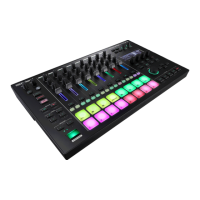
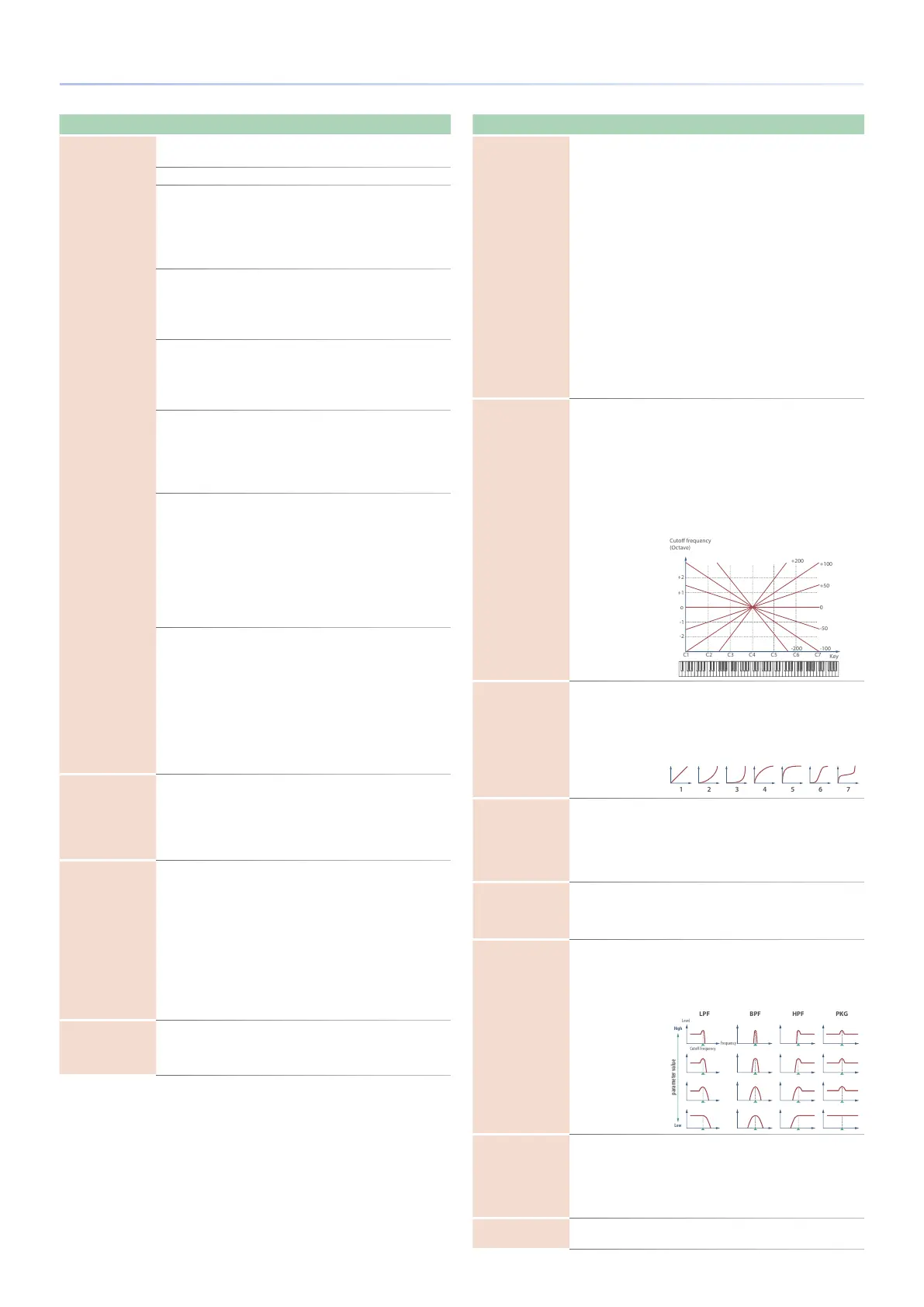